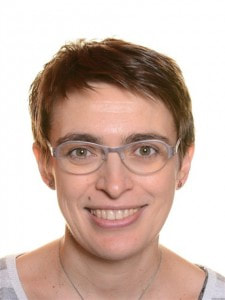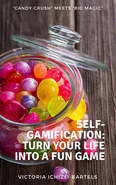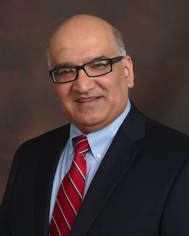 For someone who recently published his first book, writing is a very lonely activity. Finishing the book was a real struggle, but I persevered and finished it. Unfortunately, many who want to write a book don’t even get started and some who do start never finish it. Why? There are many reasons for not completing a book, but one important reason is that one does not have “cheerleaders” who are there to push her past the finish line. Victoria Ichizli-Bartles has written Cheerleading for Writers, a book that helps those writers who need some support to finish their books and for non-writers who want to get a better understanding on how a writer takes a book project from start to finish. In this blog, I ask five questions plus a bonus question to Victoria Ichizli-Bartels about writing. I wanted to understand how she has improved as a writer, the writing process she uses, how she comes up with the subject of her books and get her recommendations on books that have influenced her writing. Note, I reviewed her book on Amazon and as you will see from reading the review that I highly recommend her book. How has writing several books improved you as a writer? It made my writing flow easier; I second-guess myself less and less. My grammar (as a non-native speaker) improves, as well as the quality of my writing. I learned to write the best book I can in that given time of my life, but I also learned that there are many perfect ways to write the same book, so I stopped trying to write a bestseller. Sending my work to Writer's Digest Self-Published Book Award and getting amazing feedback and grades helps to realize that I am not that bad. Each new book also means further feedback on it. And each of them got positive reviews. That motivates me as a writer. Also, the editing process, and realization that the teamwork of my editor and me make my books better make me even more enthusiastic about writing and less afraid to make errors. That goes back to less second-guessing. You mention in your book that Cheerleaders for Writing is a compilation of your blogs you wrote between November 2015 and October 2016, do you think this is a good approach for someone who wants to write her first book, so she has better success at completing her first book? Yes, I think it is. I was fortunate enough to find my first fan (when not counting my family and friends) on my blog. I shared my book with her, and she helped me to pull through the process. Blogging a book, as some authors call that process, helps to find fans who cheer us through the process. But that is also a commitment you make as soon as you share your writing with others. This commitment helps you to persevere. If you start blogging your book and get one or two comments on it, then more, after that it is harder to stop and explain why you quit than simply continue writing chapter by chapter. Stopping doesn’t make the things, which we started, complete. And it’s harder to stop when people are waiting for the story to continue. What is your writing process? Do you use a detailed outline before you start writing your book? No, I don't use a detailed outline. I like micro-plotting. Meaning, that if something is not progressing and I procrastinate a chapter, then I look closer there and take time to jot bullet points. The outline emerges step by step. Right now I work on a novel that way: jot thoughts on the outline, or write down parts of various scenes, descriptions, and dialogues. I try not to limit the creative process. And if I have a fun idea for a scene, then I write it down. Independent where in the story it occurs. Earlier I carried a notebook with me to do it, but I caught myself procrastinating to copy those bits into my book projects in Scrivener. Now I send myself emails and then it is easier to copy those bits into the manuscript. The game-like approach as well as seeing myself and my behavior non-judgmentally helps here a lot. When I observe myself being too stressed about a piece of my writing, then I try to slow down and sort out my emotions about it, paying attention which parts of that bit are fun to work on. And then I emphasize on those fun bits getting rid of or modifying the other. If I have fun writing something, then there is a good chance that my readers will have fun reading that. If I hate the scene I write, it will show, and my readers will hate it too. So nowadays I let (as much as I can) my curiosity, enthusiasm, and fun be my guides in both plotting and writing. What are some of the differences between writing nonfiction vs. fiction? Do you enjoy one over the other? I enjoy both, but I find right now non-fiction dominates my writing time and it looks I say more yes to it than to my fiction. That also has the interest from potential readers. But there are bits of time when I have some ideas for scenes for my current fiction work-in-progress, and then they feel easy and enjoyable to write. I guess my answer to these two questions might differ from one day to another. Has writing made you a better reader or being a good reader made you a better writer? Absolutely yes, in both cases. I wouldn't have been a writer if I hadn't been addicted to reading. I do read differently since I started writing. I observe the writer while reading. I am currently very much into Nora Roberts books (one of the reasons is that they are both captivating and comforting to read; another is, she takes such good care of her characters, settings, and the stories encapsulated in each book). Her books, the scenes, the characters give keys and clues for my books. For my current work in progress, one great clue was that I want to try two points-of-view and voices instead of one as I did before. Reading helps me both improve my writing and identify what is fun for me right now. Bonus Question: How has writing changed you? I didn't know for a very long time that writing was my dream and a long-term calling. In addition to my work as a semiconductor physicist, engineer, secretary, personal assistant, interpreter, consultant, teacher, project manager, team leader, business owner, and other, I tried various art-forms. I attempted making jewelry, playing guitar, painting, drawing, dancing, knitting, making self-made Christmas decorations, playing games, and some other, but nothing kept my interest for long. I wasn't curious to stay longer with any of these. I still do some of them on one or another occasion, but nothing that brings me joy to come back again and again. I found that writing is the best way for me to express myself.  Writers read a lot, and I always like to find out what five books that have influenced them or their writing. Here are five books Victoria Ichizli-Bartles recommends. You can find her extensive list in “Recommended Reading” at the end of Cheerleading for Writers.
Information about Victoria Ichizli-Bartles books and her upcoming book Cheerleading for Writers is one of Victoria's motivational books. Check out all of them and her other books on https://www.victoriaichizlibartels.com/books/ If you would like to increase your motivation and productivity in writing and other projects, and have fun in the process, then take a look at Victoria's book crowdfunding project Self-Gamification: Turn Your Life into a Fun Game (https://www.inkshares.com/books/self-gamification-turn-your-life-into-a-fun-game).  Jay Oza is a writer, speaker, executive coach and a student. He has worked as a programmer, a technical sales consultant and an alliance manager before reinventing himself. He volunteers for Hire Heroes USA mentoring and coaching experienced military veterans get executive level jobs. He is an author of Winning Speech Moments: How to Achieve Your Objective With Anyone, Anytime, Anywhere. Please download the free speech checklist and the free speech workbook to help you with your next high stakes speech. I will add you to my newsletter list so I can provide you tips, techniques and insights on speaking and other related subjects every two weeks. You can reach me at [email protected].
0 Comments
Leave a Reply. |
AuthorJay Oza Archives
July 2024
Categories
All
|
© 2017 Winning Speech Moments


 RSS Feed
RSS Feed